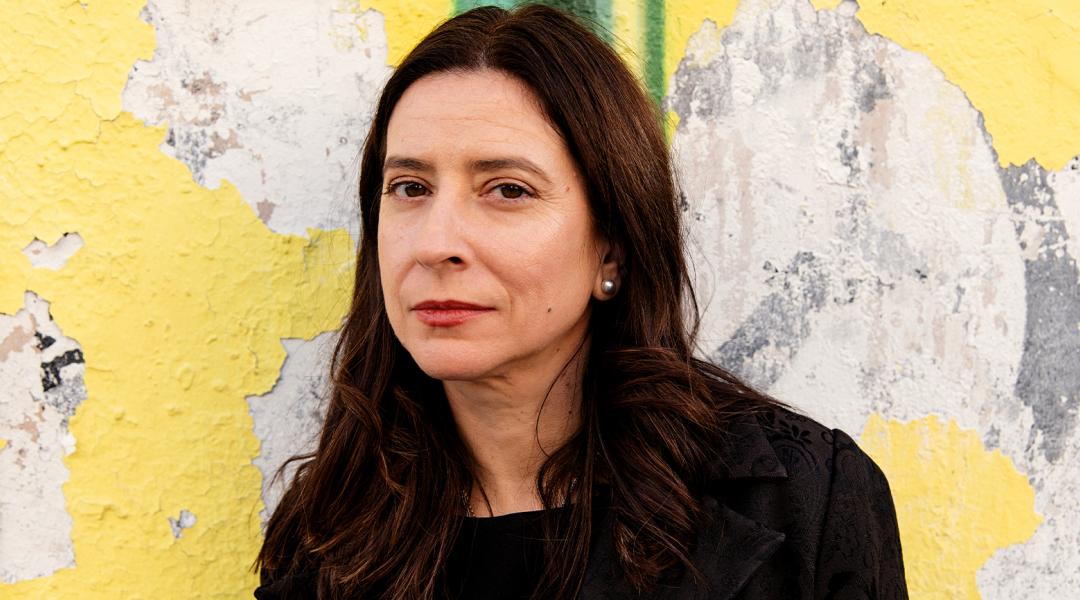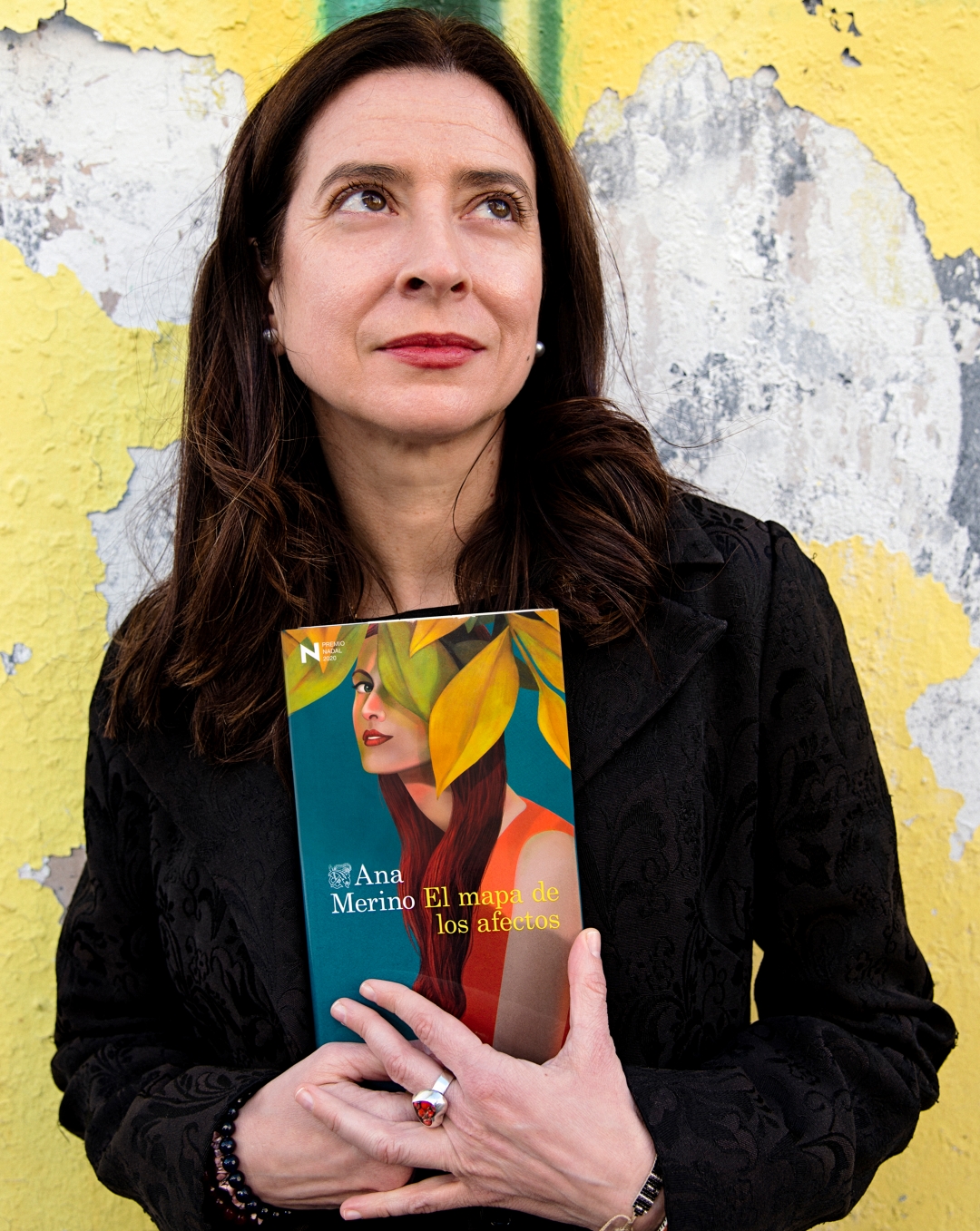Ana Merino
An All-Round Author

With her first attempt at novel writing, writer Ana Merino has become the new recipient of the 2020 Nadal Award for 'El mapa de los afectos', a portrait of America’s Midwest that captures today’s main social issues and in which references to Spain abound.
Twenty-five years ago, her nomadic and adventurous spirit took her to the United States. Going from job to job, she lived in Ohio, Pennsylvania, New Hampshire, and Iowa, a journey that has nurtured her literary world. A professor of Creative Writing and Cultural Studies, Ana Merino (Madrid, 1971) has tried all writing genres, from comic and fiction to essays, poetry, youth literature, and opinion pieces. This year she has surprised critics and public alike with her debut novel, El mapa de los afectos. The book, about a young teacher who is in a secret relationship with a man 30 years her senior, has won her the 2020 Nadal Prize for Fiction
What is the process of writing a novel with so many intertwined plots like?
My creative process is an open space, like life itself — you don't know where it will take you. In a novel like this, with a rhythmically and stylistically complex storyline, there’s an ongoing reviewing process that lasts until the book is finished, since this isn’t the kind of literature that is written impulsively or a book with a single plot. At the same time that you take care of all the obstacles that arise in the plots and of the interaction between the characters, you also pay attention to the style, making sure that it reads well and that it leaves space for reflection. As it happens in comics, my aim was for the reader to be able go back to a specific chapter and get moved again because it’s written with a poetic rhythm.
There are also several references to Spain. Is it still a source of inspiration despite having lived abroad for so many years?
It is indeed. Spain is a fundamental interlocutor in my life. It’s the place where my roots, my childhood, and the space for my emotional education are. The way I communicate comes from being from Spain. Those references add originality to the novel. While it’s impregnated with an American atmosphere, it also has a marked Spanish essence that can be seen in the descriptions, in the omniscient narrator and in how she approaches the different characters. The filter of Spanish culture is there.
The word affection has a positive connotation, but several of the characters in the novel are moved by feelings such as jealousy, anger, revenge... Why that title?
Affection is paramount because it heals the wounds of the characters and it nurtures and supports the novel, although then there’re the contradictions and the dark spaces of society that cause so much pain. There’s also a hymn to peace, for example in the sense of honour that passes from generation to generation in the lives of soldiers, which is very painful. Despite the negative feelings that move some of the stories, affection is the basis and what emerges when reflecting upon the main characters.
"My literary drive led me to write a novel, which provides me a world of voices and reflections on the human being"
What is the basis for this novel?
El mapa de los afectos is a very personal look at my American experience, which I turned into a literary voice. The love for literature and my father's know-how have also been very present, as well as my partner, who is a writer. It’s very interesting to be surrounded by authors, voices and projects in a city like Iowa, where literature is in the air.
El mapa de los afectos is a polyphonic novel with several leading characters. Who are your role models?
There is a beautiful poetry book that I liked very much as a young woman — Spoon River Anthology, by Edgar Lee Masters, in which the dead of a small village speak from their tombstones, each poem being the account of one of their lives. Beyond poetry, I very much like Russian writer Turgéniev and the way he encapsulates things and seeks for precision in his short novels. I was interested in how he defines and presents his characters through broad brushstrokes. I like to look for that expressiveness, synthesis and rhythm by using the right word.
Many of the stories in this book address hot topics such as sexism, war, and a concern for the environment. Are you looking to send a message?
The message is literature itself in constant dialogue with the present time because those hot topics have been so during the 48 years of my life. Literature manages to establish a dialogue when it is realist and speaks of its time. It something that has come out naturally because I talk about what I’ve experienced in trips and encounters; nothing of what I say is made up.
“The message is literature itself in constant dialogue with the present time”
What encouraged you to write a novel?
I think that I have reached maturity and that it shows in this novel. Writing it has allowed me to internalize my American experience and to express all the emotions that I’ve lived and everything that I’ve learned throughout these years. My literary drive led me to write a novel, a genre that provides me with a world of voices and reflections on the human being. I've written poetry, a lot of essays, opinion pieces, children's and youth literature... But the novel was the realm to express that experience.
You have also written theatre plays. What has this genre given you?
Above all, the experience of working in a team. Apart from writing the play, I’ve been involved in two theatre productions and been able to create an action limited to a temporary space. There’s a very interesting expressive quality to theatre, plus it offers the chance to work with actors, which I really like.
Before starting this journey, did you know you would end up making a living as a literary author?
No, although literature and the love for books have been present at home all my life. My father is a writer, so the natural thing for me was to love books. I started keeping diaries when I was little and literature was part of my life, but I wasn’t aware of this new dimension that it would later bring to my life.

After trying other genres such as essays, poetry and youth and children's literature, Ana Merino has made a wonderful debut in novel writing. © Courtesy of Editorial Destino
What inspires you when writing?
Curiosity. Whenever I observe human beings and their surroundings, I feel the need to put order to what I see through words. I always write by hand, in notebooks; then I type it onto my computer and write different versions. Writing at sunrise also inspires me a lot, since the rest of the day I’m usually working at the faculty. I like to get up early, have an orange juice, a latte and a toast, sit at the kitchen table and write. I love that first moment of the day, when I have a clear mind.



